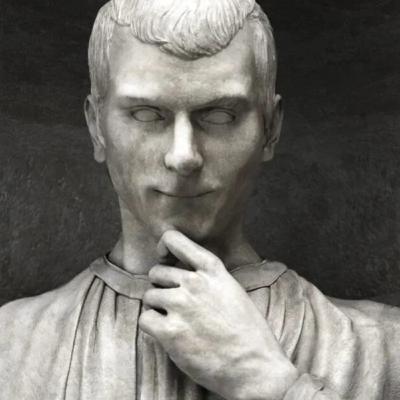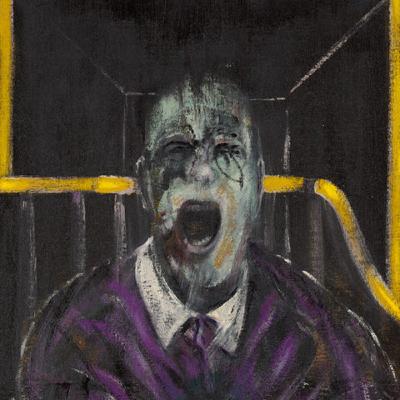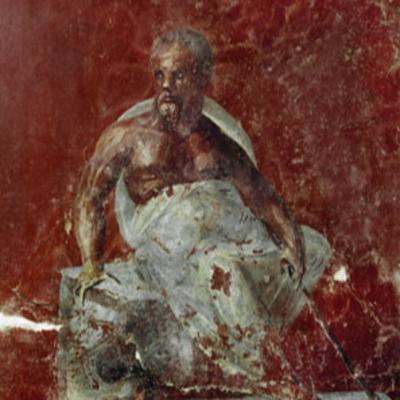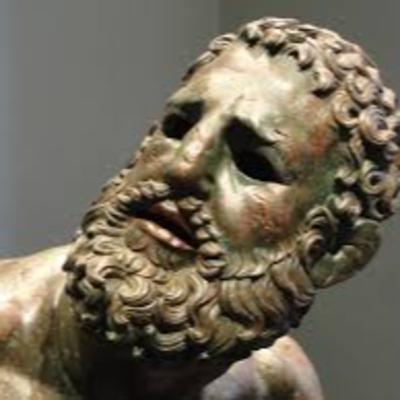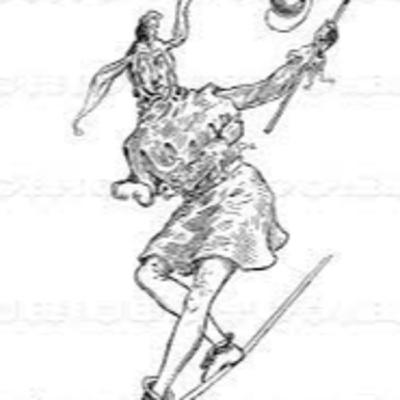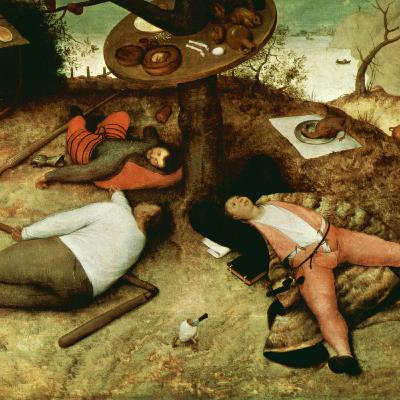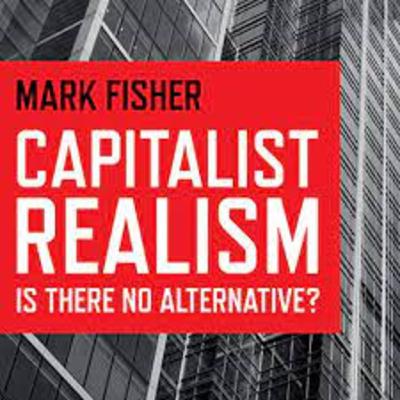Discover The Spinoza Triad:
Philosophy in our World
The Spinoza Triad:
Philosophy in our World

The Spinoza Triad:
Philosophy in our World
Author: John Gibbs, Dr Richard Miller & Dan Rowland
Subscribed: 37Played: 352Subscribe
Share
© John Gibbs, Dr Richard Miller & Dan Rowland
Description
Welcome to The Spinoza Triad. We are a group of seasoned educators who like to discuss philosophy, culture and any big ideas which interest us. These podcasts are aimed at anyone who enjoys philosophy. Please join us and share in our enthusiasm as we grope around in the great ideas of the world. We aim to be amusing, illuminating and on occasion, thought- provoking. Listen as we fail in the attempt.
email: jfgibbs105@gmail.com
https://anchor.fm/john-gibbs1/message
https://www.facebook.com/groups/333603241740844/
https://www.speakpipe.com/SpinozaFeedback
https://sites.google.com/d/1OL94UHC
email: jfgibbs105@gmail.com
https://anchor.fm/john-gibbs1/message
https://www.facebook.com/groups/333603241740844/
https://www.speakpipe.com/SpinozaFeedback
https://sites.google.com/d/1OL94UHC
32 Episodes
Reverse
In this episode of The Spinoza Triad, Dr. Richard Miller, Dan Rowland, and John Gibbs discuss the philosophical underpinnings of Plato's dialogues, particularly focusing on the Socratic method, the art of rhetoric, and the moral implications of persuasion. The discussion explores how these themes relate to modern education, the concept of virtue, and the challenges posed by cancel culture in contemporary debates. We reflect on the nature of the good life and the responsibilities that come with the power of persuasion, ultimately questioning how society defines and pursues virtue today. We discuss the philosophical themes of pleasure, happiness, virtue, and power, drawing on the dialogues of Socrates and Calicles. We discuss the implications of pursuing pleasure, the nature of morality, and the role of power in politics, ultimately questioning the modern interpretations of virtue and the societal values prioritizing wealth and success over genuine fulfillment.
This conversation delves into the representation of Gotham City as a text, exploring its origins, meanings, and the semiotic analysis of its imagery. Dan, Richard, and John discuss the historical context of the term 'Gotham', its connections to urban design, and the dualities present in its narrative, particularly through the lens of Batman. They examine the architectural symbolism of Gotham, the role of myths and archetypes, and how these elements reflect societal fears and cultural codes. This conversation delves into the semiotic analysis of Gotham and the character of Batman, exploring how narratives reflect and critique capitalism and ideology. The discussion highlights the evolution of Batman's character from a simplistic hero to a complex figure grappling with moral ambiguity and psychological struggles. We also examine the cultural significance of urban environments and the authenticity of narratives within them, ultimately connecting these themes to broader societal reflections and the role of pop culture in shaping our understanding of the world.
Gotham's name originates from a folk tale about fools.
Semiotics helps decode the meanings behind signs.
The imagery of Gotham is dark and layered.
Binaries of good and evil are central to Gotham's narrative.
Myths and archetypes play a significant role in storytelling.
Gotham reflects societal fears and corruption.
The architecture of Gotham symbolizes its dual nature.
Light and dark imagery are crucial in Gotham's representation.
Cultural codes shape our understanding of symbols.
Gothic elements in Gotham connect to historical narratives. Roland Barthes' levels of signification help us understand meaning.
Gotham's narrative naturalizes capitalism through Batman's wealth.
The ideological critique of capitalism is often masked in narratives.
Batman evolves from a simplistic hero to a morally ambiguous figure.
Cultural reflections in media reveal societal anxieties and psychopathy.
Authenticity in urban narratives is tied to historical context.
Semiotics allows us to decode the meanings behind cultural symbols.
Pop culture serves as a mirror reflecting contemporary issues.
Understanding the language of semiotics enhances cultural analysis.
Decoding the world can become an engaging intellectual pursuit.
In this conversation, The Spinoza Triad John Gibbs& Dr. Richard Miller discuss the film 'The Uglies' and its implications on contemporary culture, beauty standards, and the influence of technology on identity. The discussion delves into themes such as transhumanism, the motif of the frontier in storytelling, and the philosophical debates surrounding beauty and the sublime. They also examine the role of social media in shaping perceptions of beauty and the ethical dimensions of aesthetic experiences.
Key ideas
The Uglies reflect contemporary beauty standards and societal pressures.
The motif of the frontier symbolizes the quest for freedom in storytelling.
Transhumanism raises questions about identity and body modification.
Technology increasingly shapes our self-perception and identity.
Beauty is often subjective and culturally specific, not universal.
Cultural capital influences perceptions of beauty across social classes.
Historical standards of beauty have evolved significantly over time.
Philosophical debates on beauty often contrast subjective and universal perspectives.
Romanticism emphasizes the importance of the sublime in human experience.
The ethical dimension of the sublime can lead to transformative experiences.
In this episode, the Spinoza Triad, Dan Rowland, Dr. Richard Miller, and John Gibbs discuss Existentialism and some of the ideas of Jean-Paul Sartre. We explore how Existentialism emphasizes individual freedom and responsibility and how the anguish of existence is a central theme in Sartre's work. We conclude that while freedom can be both empowering and anxiety-inducing Existentialism offers insights into living in contemporary society.
00:00 Setting the Scene: Existentialism and Café Culture
02:28 Exploring Jean-Paul Sartre: Life and Influence
06:03 The Nature of Freedom: Positive and Negative
11:09 The Burden of Freedom: Anxiety and Authenticity
20:13 Existentialism in Popular Culture: Reflections and Parables
30:11 The Relevance of Sartre Today: Authenticity in Modern Life
In this conversation, John, Dan and Rich discuss the life and trial of Socrates. They explore Plato's representation of Socrates and the accusations he faced, including corrupting youth and introducing alternative gods. They also touch on Socrates' belief in the existence of a personal spirit guide and his views on the nature of knowledge and truth. The conversation delves into the relevance of Socrates today, particularly to freedom of speech and the pursuit of an authentic life. They discuss the potential for Socrates to be canceled in the modern world and the importance of open dialogue and the examination of different viewpoints. The conversation explores the topics of cancel culture, freedom of speech, and the role of experts in society. It references the ideas of Socrates and John Stuart Mill to examine the complexities of these issues. The discussion touches on the importance of allowing diverse opinions and the potential harm caused by offensive or harmful speech. It also raises questions about who gets to decide what is acceptable speech and the role of context in determining harm. The conversation concludes with a reflection on the relationship between goodness and freedom of speech.
The conversation explores the central themes of Yanis Varoufakis' book 'Technofeudalism' and the impact of technology on capitalism. The discussion covers topics such as the shift in capitalism after the 2008 financial crisis, the role of behavior modification in the digital age, the control and manipulation of online identities, the rise of cloud capitalism, the clash between China and America in the tech industry, and the dissatisfaction and division caused by the algorithmic control of information. The conversation also touches on the potential for collective action against tech giants and the need for a reevaluation of our relationship with technology.
In this episode, the Spinoza Triad, Dr Richard Miller, John Gibbs, and Dan Rowland discuss the topic of fear. We start by reflecting on stoicism and later consider Satre, Hagel, Gramsci, Althusser, and Neil Postman.
In this episode Dr Richard Miller, Dan Rowland and John Gibbs discuss how philosophy has grappled with the problem of defining history.
In this episode the Spinoza Triad, Dr. Richard Miller, Dan Rowland and John Gibbs, discuss the philosophy of truth and the post truth world. We discuss how philosophy might help us understand the rise of populi, social media, conspiracy theories and the privatisation of truth. We also discuss the possibilities of UFOs.
Learning, schools, education, teaching, music, philosophy, mixed martial arts.
In this episode, I interview my fellow Spinoza host Dr. Richard Miller. We discuss his journey from struggling at school to becoming a doctor of philosophy. His love of blues guitar and his career as an MMA coach.
David Chalmers, The hard problem of consciousness, can AI ever be conscious? Will AI replace us?
In this episode, Dan, Richard, and John discuss consciousness, intelligence, and AI. We discuss the Turing Test, the Chinese Room, and the future of AI.
In this episode Richard and John discuss the first part of Friedrich Nietzsche's most poetic book, Thus Spake Zarathustra and as usual, we ask, what does it say to us today?
In this episode of the Spinoza Triad, John Gibbs and Dr. Richard Miller discuss their reading of Soren Kierkegaard's book Either, Or. Dan Rowland was unable to join us for this episode. Richard supplied the music.
In this episode, Dr. Richard Miller and John Gibbs discuss the concept of evil, free will, and the possibility of world peace. If you could release a virus into the world which would make all humans peaceful- what would you do?
What does it mean to be me? Am I the same person at all times and will I be the same person in the future? In the Spinoza Triad, John Gibbs, Dr. Richard Miller, and Dan Rowland discuss the continuity of the self and Derek Parfit's famous 'Transporter Thought Experiment'.
In this episode, Richard (Dr. Richard Miller) and I consider the appeal of the literature, films, and podcasts which focus on Psychopaths. We wonder what this might say about our world and if philosophy might help us to understand. We share some ideas in a discussion covering many themes including popular culture, Kantian ethics, the nature of evil, and society.
In this episode, Richard, Dan, and I discuss Nietzsche's famous thought experiment of eternal reoccurrence. Would you wish to live your life exactly as you have lived it, again and again for eternity? Would this be a curse or a blessing?
This is an introduction to the work and ideas of Mark Fisher which we discuss in more detail in our podcast- Capitalist Realism: Can we think beyond capitalism?
In this episode, Richard introduces the Spinoza Triad to Mark Fisher's ideas and Capitalist Realism's ideas. Our discussion focuses on his and our experiences in education. We consider the state of British society, and the all-pervasive nature of capitalism and wonder if it is possible to imagine a different kind of world or would this be harder than imagining the end of the world.
In this episode John and Richard discuss a text which was referred to in an earlier podcast. 'De Rerum Natura' - 'On the Nature of Things'. On of the most remarkable books ever written, On the Nature of Things' by the Roman author Lucretius was an influence on many of the greatest thinkers and artists in the last 2000 years. It was written in the first century BCE by a wealthy Roman as a means of explaining the philosophy of Epicurus to his fellow Romans and in poetic form it contains ideas which are startlingly modern and as exciting to a modern reader as they were to his contemporaries. In this episode I explain my admiration for this book to Richard.
https://www.facebook.com/groups/333603241740844/
https://sites.google.com/view/wwwphilosophytodaynet/home


